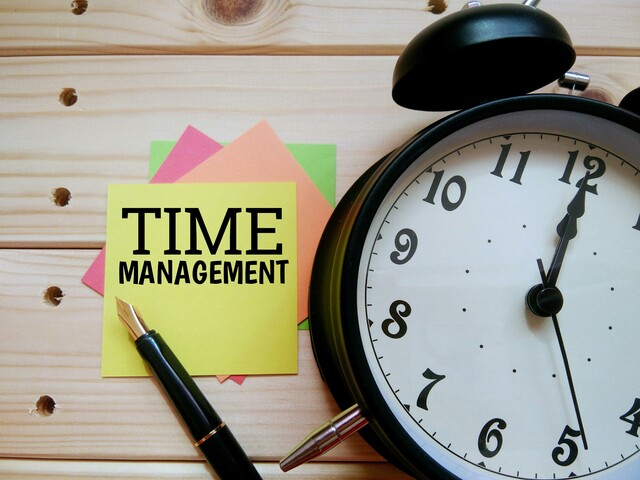It is true that you will have times when you need to have your pen in your hand and be writing, for whatever reason. Not only is that acceptable, but it usually is encouraged and can enhance the benefit you get out of what you are listening to.
Getting the Most Out
Whether you are a college student who regularly has to listen to lectures or a business person who attends seminars and meetings, being able to take good notes is important. Not only will it help you get the most out of what you are listening to, but it will help you clarify things later and refresh your memory regarding what was said.
Some people, depending upon learning style, are not audio learners. What that means is that they do not always learn the best way by just listening to something. Those people often can benefit from writing some of the key facts about what is being said.
Top Reasons to Take Notes
- Taking good notes will help you make more sense out of what you are listening to.
- Having a record of what was said will be helpful for reviewing later, as needed.
- You may be listening to some unique information that you will want to remember later.
- The main facts and points that the speaker is making will be revealed in your organized notes.
Note-taking Skills
The most important factor in being able to take good notes is being a good listener. You already have learned so much about what it means to be a good listener and how to do it. If you are a good listener, you will be able to pick out those important things that are worthy of writing down in your notes.
What you do not want to do is try to write down everything that the person says. By doing this, you likely will not take in as much as you should because your focus will be on getting all the words written down and not actually paying attention to what the person is saying.
Good note-taking skills are learned. If you have not been good at taking notes in the past, do not worry. You can change this by learning what good note-taking looks like and then practicing it until it becomes a habit.
Keep these tips in mind when it comes to taking good notes:
- Be prepared. It is hard to take notes if you walk in unprepared. If you are going to be listening to a lecture, seminar, or meetings, always take paper and a pen with you. That way, you are prepared if you decide you want to take notes.
- Listen up. This is the time to put into use all the good listening skills that you have been learning. It is important to be open-minded, engage in active listening, have good body language, etc.
- Develop a style. Try different note-taking styles until you find one that works well for you and then stick with it. You will want to think about such things as leaving some blank lines so you can go back and write in additional notes if you need to, abbreviating words, etc. You will also want to write brief lines rather than trying to write out every word in a sentence. You may want to highlight or circle important information that you will want to quickly find later. Do not take the time to erase anything if you make a mistake. Just draw a line through it.
- Find facts. When it comes to taking notes, you want to listen for the facts or main points that are being said. Write those down in a brief format rather than trying to write down everything or full definitions. More than anything else, it is important to make sure that you get the main points written down. Also, write down anything that the person is repeating, writes on a whiteboard or overhead, or if there are any examples provided that may be helpful later. Write down any words mentioned that you are unsure of.
- Summarize. Your goal in taking notes is to summarize what you are listening to and how you are interpreting the information. Rather than simply try to write down word for word what the speaker is saying, summarize what you are getting out of what you are listening to. It will make more sense to you later and help you make more sense of it at the time.
- Clarify. If you end up having questions or need clarification on any of the points that the speaker made, be sure to ask for clarification when the time is appropriate. If you leave not understanding something, it is doubtful that it will become clear on your own once you leave.
- Review. Within a day or so, review the notes that you took. This will help refresh everything that you learned and give you a chance to make additions or changes as needed. This is the time to also look up the definitions to any words you wrote down that you were not sure of.
- Organize. Your notes should always be organized. If you are taking a class, put all your notes in a three-ring binder to keep them together. If the notes are for work purposes, keep them in a binder or file for future reference.
Keeping these tips in mind and following the listening skills you have been learning, you should have no problem getting the most out of any lecture, seminar, or meeting.
Activities that Improve Listening Skills
If you want to improve your listening skills, it is important to be actively involved in making it happen. As is true when it comes to improving any area of your life, you will need to work at it. There are things you can do to help improve your listening skills.
Activities to Improve Listening Skills
Out of the list of things below you can do to help improve your listening skills, you do not have to do all of them. Try a few exercises and see which ones you like and find out what works for you. If you try something and you do not think you got much out of that particular exercise, just move on to another one. What works for one person may not work for another.
Taking Notes
For this exercise, spend one whole day paying close attention to any communication you have with others. Keep a notebook and write down each conversation right after you have it. Answer some basic questions, such as with whom you spoke, what was discussed, what the main points were, and whether you learned anything new. By recapping each conversation, you will be sure to listen well while it takes place, so you can gather this important information. This will give you a good idea of just how well you are paying attention, so you know the types of improvements you need to focus on.
Acknowledging the Speaker
Ask Questions
For this activity, you will spend one whole day purposely asking questions when you communicate with people. Set a goal to ask two or three questions of each person you speak with or are listening to. Your goal will be to make sure the questions are asked at an appropriate time and are relevant to the discussion. You can ask for clarification or for more information about something, but try not to go off topic. This exercise will help you see how the speaker reacts to your questions, whether you are asking them at the right time, and if the questions help clarify information.
The Eyes Have It
As you are engaging in one of the other exercises, make sure to look at the speaker, pay attention, and make eye contact at least for one whole day. Notice how it feels, how long you think you should engage before looking away, and if it helps to make the listening experience seem more active. Doing this also will show the person that you are interested in what he or she is saying, which is a key component of good listening skills.
Focus on Body Language
You have just learned quite a bit about body language, what it looks like, and why it is important to developing good listening skills. Spend some time focusing on your own body language. You could start out by taking a day or so to see what type of body language you currently are displaying. Or you can go right to the exercise of being conscious of the body language messages you are sending out to the world. When you are listening to someone, notice your posture, where your hands are, what you are doing, etc. And work to try to make sure your gestures are all positive and enhance the listening experience, rather than hinder it.
Avoiding Interruptions
Focus on Distractions
You already have learned how important it is to minimize or eliminate distractions when listening to someone. Take a few days and purposely focus on eliminating the distractions whenever someone speaks to you. Notice how it may help the conversation. This may be an important exercise to do at home, when you may have a spouse, partner, or child who enters a room to speak with you while you are watching television. Normally, if you are like most people, you probably will just keep looking at the television or possibly look up for a brief second and then go back to watching the television. However, this is not the best way to let the speaker know you are interested or paying attention. So make an effort to eliminate the distraction and see where the conversation goes then.
Patience and Practice
It is important to realize that you did not acquire your current listening skills overnight. Quite the contrary, they are a culmination of years or decades' worth of listening habits based upon your personal experiences. In the same way, you most likely are not going to be able to change your listening habits, or someone else's, overnight.
If you want to improve your listening habits, or those of someone you know, it is going to be a process that involves practice. So be patient, work at it repeatedly, and it will become your new habit. Stick with it, and soon good habits will be the only way that you engage in listening.
How to Teach Children to be Good Listeners
As you may realize by now, many of our habits in engaging the world around us are rooted in childhood. That is when we learned whether it was acceptable to interrupt people when they were talking, whether our body language mattered, or whether making eye contact when someone was speaking to us was important. By the time you reach adulthood, you have spent 18 years already entrenched in the listening process.
Therefore, whatever skills and habits you picked up along the way usually stick with you, unless you purposefully make efforts to improve upon them. If you have children of your own, visit with nieces and nephews, or even work around children, it is important to help them start learning good listening habits early on. There are plenty of things you can do to help them get started.
Building a Foundation
When you help children develop good listening skills, you can do more good than you realize. It can help improve personal relationships, help them do better in school and later go on to help them in adulthood.
Children who have a difficult time paying attention may find that they are distracted easily, have hearing difficulties, have an inability to focus or follow directions, or have difficulties being able to concentrate.
To help children improve their listening skills, try some of these activities:
1. Games: Playing games is an easy and fun way for kids to focus on paying attention and listening, especially if the games require that they pay close attention to what is being said. Games such as bingo, Simon says, musical chairs, or red light-green light are good choices.
2. Circle time: If you have a group of kids, have them sit in a circle and practice telling a secret to one child, who passes it on to the next, all around the circle, until the last child to hear the message reveals the secret. You also can have an object serve as a speaker's tool, intended to help children learn that only the person with the special tool speaks, while the others listen.
3. Reading: Either read books aloud or play compact discs (CDs) and have children explain what they listened to. You also can have them listen to a story or CD and then color a picture about something that took place in the story. When you are reading together, talk about what you are reading and ask their opinion and input about what is happening or what they think may happen at the end of the story.
4. Start talking: By talking to your child often, you will help him or her become engaged in listening. With children, it is usually helpful if you get down on their level in order to get their full attention. This may mean you need to kneel or bend over some, but by doing so you will have a better chance at engaging their attention.
5. Play word games: Most young children love to rhyme. You can create your own rhyming games in which both of you rhyme off of each other's words. This will get them to listen to your words.
6. Start cooking: Most kids love to help cook or bake something. Spend time with them picking out a recipe they are interested in and then, one by one, read the directions of what is needed and should be done. If it is age-appropriate, let your child follow the directions you are reading, which will allow the child focus her or his listening to hear what is needed next.
7. Start walking: Take a weekly "listening walk" with your child and encourage the child to notice and try to identify all the sounds. Make the focus of the walk the sounds heard.
8. Seeing is believing: As you already have learned, making eye contact is an important function of good listening. Children often are a bit reserved when it comes to making eye contact. Therefore, you can make a point to have them look you in the eye by asking them to or reminding them.
9. Role model: The most important way in which children will learn to be good listeners is if the adults around them model good listening skills. Children are very perceptive and usually will watch and do what they see being done. If you are consistently using good listening skills in front of your child, the child will pick up on that and likely do the same.
Setting the Bar High
Keep in mind that you will need to find age-appropriate activities to help create good listening skills. Not all of these activities will be appropriate for all ages. But you should be able to identify some key activities for every age group as a child grows.
Parents and teachers often get frustrated with children because of their listening habits. Rather than take the time to explain and show them what good listening habits are, they say, "I have told you this 100 times," or "Why do I always have to repeat myself to you?"
Did you know?
A research study showed that teens whose parents asked them to turn down their headphones actually turned them up more often? It is true! The problem, unfortunately, is that it is believed that using headphones actually can damage one's hearing. So maybe your teen really is not hearing you when you ask her or him to do chores.
Taking on Teens
If you have a teenager, however, most of the above suggestions may not be appropriate activities. At that age, you should be able to have discussions about what good listening habits are and why they are important through life.
Another possibility is to have teenagers conduct their own research on good listening skills and write a paper about it or report back to you what they learned on the topic.




























